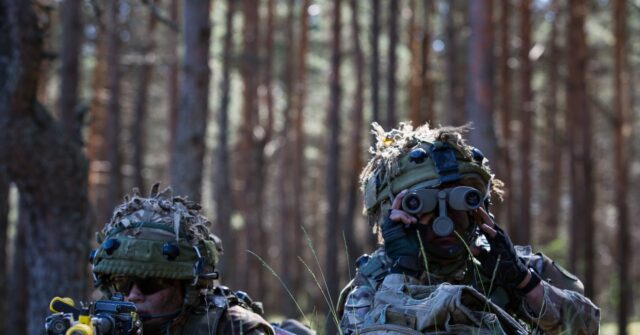Ukrainian President Volodymyr Zelenskyy recently expressed urgent concerns regarding the deployment of North Korean troops in Russia, urging allied nations to take immediate action rather than simply observing the situation. In his statements, he emphasized the potential threat this deployment poses to Ukraine as the North Korean military prepares to enter the battlefield against Ukrainian forces. Zelenskyy highlighted that Ukraine possesses intelligence on the location of camps where these North Korean soldiers are being trained, suggesting a preemptive strike against these sites. However, he underscored that Ukraine requires approval from its allies to utilize Western-made long-range weaponry for such actions, illustrating the complexities of international military collaboration.
The Biden administration indicated that approximately 8,000 North Korean soldiers are stationed in Russia’s Kursk region, close to the Ukrainian border, and are poised to bolster Russian forces in their ongoing conflict with Ukraine. This development has alarmed Western leaders, who regard the arrival of North Korean troops as a significant escalation of the conflict. There are concerns that this situation not only exacerbates the military tension in Ukraine but could also have broader implications for geopolitical stability, particularly in the Indo-Pacific region, where North Korea’s activities have always been closely watched.
Zelenskyy’s frustration with the perceived inaction of allies, particularly the United States, Britain, and Germany, reflects a broader sense of urgency in addressing the escalating threat posed by North Korea’s involvement in the conflict. He criticized the current stance of these nations, arguing that they are merely waiting for North Korean forces to engage in hostilities against Ukraine without taking proactive measures to counter the threat. This call for action underscores a desire for a more robust international response and greater military support from Ukraine’s allies to preemptively deal with emerging threats.
The deployment of North Korean troops could further complicate an already volatile conflict in Ukraine, raising fears about the potential for increased hostilities and the introduction of advanced military capabilities from North Korea into the fray. The situation not only impacts the military dynamics in Ukraine but also poses significant risks concerning technology transfers between Russia and North Korea. As these two nations strengthen their military ties, there is a heightened risk that such collaborations could enhance North Korea’s nuclear weapons and missile programs, posing a more considerable threat to regional and global security.
Further complicating the situation, the recent meeting between North Korean Foreign Minister Choe Son Hui and her Russian counterpart indicates a deepening of diplomatic relations between the two countries. This development could signify an ongoing commitment from North Korea to support Russia in its military endeavors, reinforcing concerns about the implications such cooperation may have for international security and stability. Analysts warn that as Russia leans on North Korea to supplement its military capabilities, the risks of escalation in the conflict may rise, potentially drawing in additional international actors.
In conclusion, Zelenskyy’s urgent appeal to allies reflects a critical moment in the ongoing conflict as the involvement of North Korean troops in Russia reshapes the battlefield landscape. The international response to this development will be pivotal in determining the direction of the conflict, as well as the future of geopolitical relations between the involved nations. The complexities surrounding military support, alliances, and the potential for escalation underscore the delicate nature of the current situation, demanding swift and decisive actions from Ukraine’s allies to mitigate the looming threats posed by the collaboration between Russia and North Korea.

